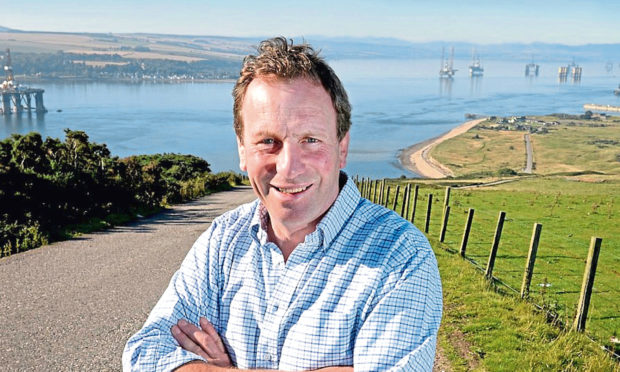The latest Covid-19 restrictions could prove “the very last straw” for a number of small hospitality businesses, the head of the organisation that launched the Highlands’ hugely popular NC500 tourist route has warned.
David Whiteford, chairman of the North Highland Initiative (NHI), claimed that, with some already “teetering on the brink”, the sector in the region was being “unfairly penalised” by the 10pm pub and restaurant curfew announced last week and regulations limiting the number of people who can meet to six from two households.
The Scottish Government has said the Scotland-wide measures are necessary to curb rising levels of the virus.
According to Mr Whiteford, more widespread “pre-emptive” testing at the start of lockdown would have helped locate sources of infection.
He said: “There is no evidence that hotels and restaurants are sources of infection, especially in the north Highlands, so I would encourage the public health experts to justify their rationale.
“I fear this unnecessary curfew may well turn out to be the very last straw for some small rural, family-owned hospitality businesses that are already teetering on the brink.”
A report published by Highlands and Islands Enterprise (HIE) earlier this month, before the introduction of the latest restrictions, estimated tourist spend in the region would plummet by between £370 million and £584m this year, as a result of the pandemic.
Anna Miller, HIE’s head of tourism, said: “The challenges for the sector are to adapt so they can keep in line with guidance on social distancing while continuing to provide exceptional customer experiences safely and responsibly.”
She added: “Our focus has been on distributing Scottish Government support to the industry. We are also working with partners to deliver the £14m hotel support programme, designed to protect sustainable employment in larger hotels across Scotland.”
Staycations in north Highlands proving to be popular option
According to North Highland Initiative chairman, David Whiteford, there are “early indications” from occupancy figures and visitor numbers that “staycations” in the north Highlands will continue to be a popular choice for people in Scotland and around the UK during the rest of the autumn, the winter and into next year.
He added that the area needed to be prepared to “maximise the opportunity.”
Mr Whiteford said: “There is more need than ever before for long-term investment in public infrastructure to create a low-carbon tourism future in the north Highlands. Making sure campsites, motorhome facilities and toilets are open to visitors and plentiful are some of the more immediate ways the regional economy can recover and grow.”
Businesses in the area have reported promising advance bookings.
Tanja Lister, from the Kylesku Hotel in Sutherland, which is on the NC500 route, said: “We’ve worked hard to provide a safe and controlled environment from which our guests can enjoy this magnificent part of the world.
“Demand has exceeded all our expectations, a welcome fact after four months of closure. Future bookings are at record levels, not just for the rest of this year but also throughout 2021.
“It is clear the industry needs our politicians to make evidence-based, sensible strategic decisions that will not only help curb the health impact of the virus, but also protect our jobs, businesses and future livelihoods. The evidence suggests we will be living with the impact of this virus for some time to come.”
Joanne Howdle, tour and events co-ordinator at Dunnet Bay Distillers, in Caithness, added: “Bookings for October look to be on track to massively exceed October 2019’s visitor numbers, as long as they are able to proceed on the basis of government guidelines.”
